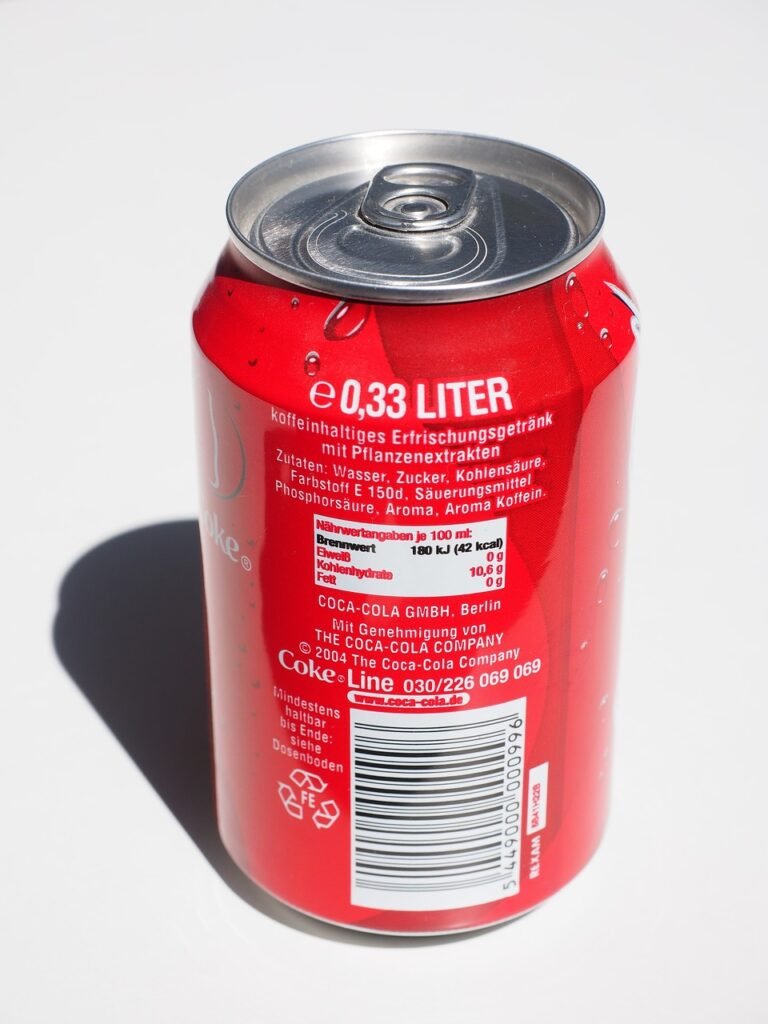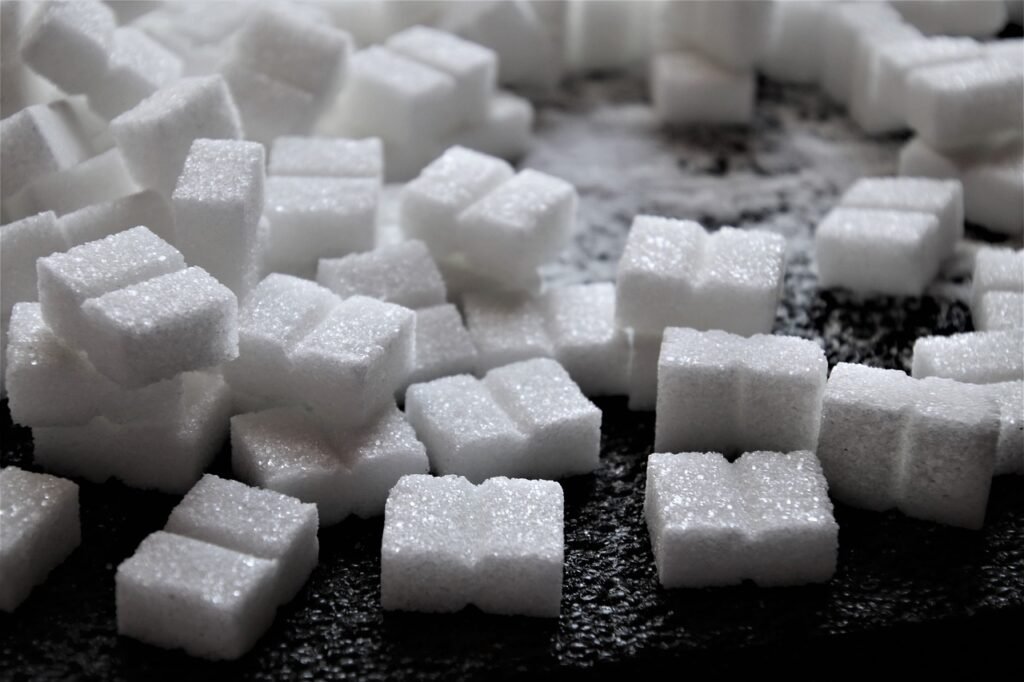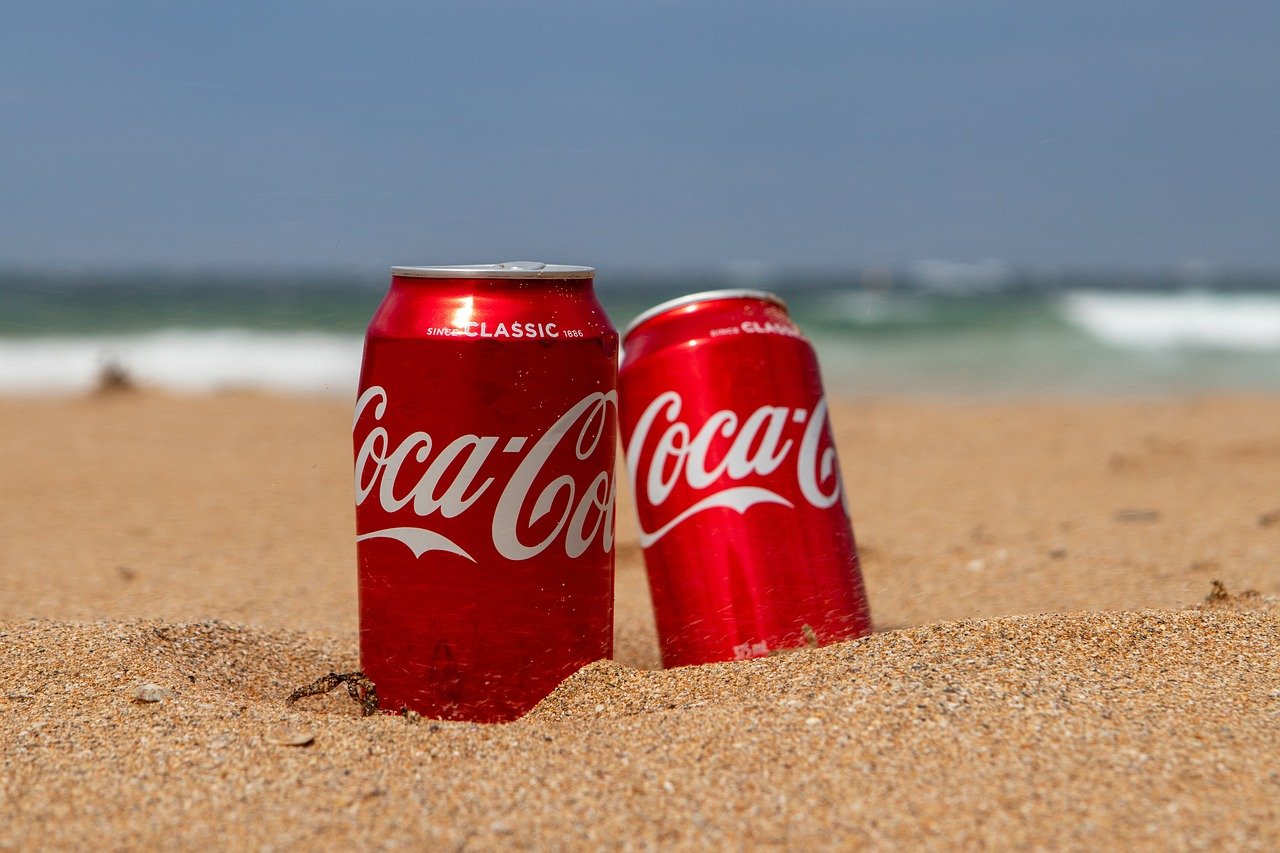
Coca-Cola is a classic and beloved soft drink that has been a staple in our culture for over a century.
From backyard BBQs to movie theater concessions, it’s hard to escape the iconic red and white branding of this carbonated beverage.
However, with the increasing focus on health and wellness, many people are curious about the nutritional value of Coke. What exactly are you consuming when you crack open a can of this popular soda?
In this blog post, we’ll take a deep dive into the world of Coke nutrition facts, from calories to carbs and everything in between.
So grab a cold Coke and join us as we uncover the truth behind this iconic drink’s nutritional profile.
Breaking Down Coke Nutrition Facts – the Basics: What’s Inside a Can of Coke?
Have you ever wondered what goes into that can of Coke you love to sip on? Well, get ready to take a journey through the basic ingredients that make up this beloved beverage.
Water
First and foremost, water is the main ingredient in Coca-Cola, making up the largest portion of the drink.
This may come as no surprise, as water is the key component in most beverages. It’s essential for keeping our bodies hydrated and ensuring the proper functioning of our organs.
Sugar
Next up, we have sugar. Yes, that sweet and addictive substance that gives Coke its signature taste.
A can of Coke contains about 39 grams of sugar, which is equivalent to approximately 9 teaspoons. This is quite a hefty amount, considering the American Heart Association recommends a daily sugar a recommended daily limit of no more than 25 grams for women and 36 grams for men.
So, it’s safe to say that Coke should be enjoyed in moderation.
Phosphoric Acid
Moving on, we have phosphoric acid, a common ingredient found in many carbonated beverages.
It gives Coke its tangy flavor and helps to balance out the sweetness from the sugar. While it’s generally recognized as safe by regulatory authorities, high levels of phosphoric acid consumption have been associated with adverse health effects, such as tooth decay and bone loss.
So, it’s best to consume Coke in moderation to avoid any potential negative impacts on your health.
Caffeine
Lastly, we have caffeine.
A can of Coke contains about 34 mg of caffeine, which is about a third of the amount found in a cup of coffee.
However, it can also lead to negative side effects such as increased heart rate, insomnia, and dependence. So, if you’re sensitive to caffeine or trying to cut back, it’s important to be mindful of your Coke consumption.
In summary, a can of Coke contains water, sugar, phosphoric acid, and caffeine.
It’s a refreshing beverage that can be enjoyed in moderation as part of a balanced diet. So, the next time you crack open a can of Coke, take a moment to appreciate the basic ingredients that make up this iconic drink.
Cheers to Coke!
Understanding Coke Nutrition Facts: The Caloric Content of Coke

Coke may be a delicious and refreshing beverage, but have you ever stopped to think about its caloric content?
Let’s take a closer look at just how many calories you’re consuming when you crack open a can of this iconic drink.
In a 12-ounce can of Coke, there are approximately 140 calories.
That’s about 7% of the daily recommended caloric intake for the average adult. While 140 calories may not seem like much, it’s important to remember that these calories come from added sugars, which provide no nutritional value.
With a can of Coke containing around 39 grams of sugar, it’s clear that this drink can quickly add up when it comes to sugar consumption.
These excess calories and sugar can contribute to weight gain and an increased risk of developing chronic health conditions such as obesity, type 2 diabetes, and heart disease.
It’s essential to be mindful of your Coke consumption and consider it as an occasional treat rather than an everyday beverage.
If you’re concerned about the caloric content of Coke, there are alternatives available. Diet Coke, for example, contains zero calories and no added sugars.
However, it’s important to note that diet sodas may contain artificial sweeteners, which some studies have linked to negative health effects.
In summary, a can of Coke contains around 140 calories, mostly from added sugars. It’s crucial to be aware of your caloric intake and limit your consumption of sugary beverages like Coke to maintain a balanced and healthy diet.
So, next time you reach for a can of Coke, consider the caloric impact it may have on your overall health.
The Truth About Sugars in Coke: An Insight into Its Carb Content
If you’ve ever wondered about the sugar content in Coke, you’re not alone.
It’s no secret that this popular beverage is loaded with sweetness, but let’s take a closer look at the truth behind the sugars in Coke and gain some insight into its carb content.
In a can of Coke, you’ll find a whopping 39 grams of sugar. To put that into perspective, that’s the equivalent of about 9 teaspoons of sugar.
That’s a lot of sweetness packed into a single can! When you consider that the American Heart Association recommends no more than 25 grams of added sugar for women and 36 grams for men per day, it’s clear that a can of Coke can quickly put you over your daily limit.
But where does all that sugar come from?
Well, it’s primarily from high-fructose corn syrup, which is a cheap sweetener used in many processed foods and beverages.
This type of sugar is known to be highly addictive and can lead to overconsumption, weight gain, and a higher risk of developing chronic health conditions like obesity, type 2 diabetes, and heart disease.
In addition to the sugar, Coke also contains carbohydrates. Each can of Coke has about 39 grams of carbs, which all come from the added sugars.
These carbohydrates provide no nutritional value and can cause a rapid spike in blood sugar levels. This can lead to a temporary energy boost followed by a crash, leaving you feeling tired and sluggish.
It’s important to be mindful of the sugar and carb content in Coke, especially if you’re watching your sugar intake or trying to maintain a balanced diet.
While enjoying a can of Coke as an occasional treat is unlikely to cause significant harm, regular consumption can have negative effects on your overall health.
If you’re looking for a lower-sugar alternative, you may want to consider diet sodas.
Diet Coke, for example, contains zero grams of sugar and no carbs. However, it’s worth noting that diet sodas often contain artificial sweeteners, which some studies have linked to potential health risks.
As always, it’s best to consult with your healthcare provider before making any drastic changes to your diet.
Beyond Calories and Carbs: Other Key Nutrients in Coke

When it comes to Coca-Cola, we often focus on the calories and carbs, but what about the other key nutrients in this beloved beverage?
While Coke may not be the most nutritious option out there, it does contain a few noteworthy components that are worth exploring.
Sodium
First up, let’s talk about sodium.
A 12-ounce can of Coke contains around 45 milligrams of sodium. While this may not seem like a significant amount, it’s important to note that excessive sodium intake has been linked to high blood pressure and an increased risk of heart disease.
So, if you’re watching your sodium intake, it’s essential to be mindful of your Coke consumption.
Vitamins and Minerals
Next, let’s discuss vitamins and minerals. While Coke isn’t a significant source of essential nutrients, it does contain a small amount of potassium.
A can of Coke contains about 2% of the recommended daily intake of potassium, which is a small contribution, but every little bit helps.
Carbonation
Lastly, let’s touch on carbonation. While not a nutrient per se, carbonation can impact the way our bodies process Coke.
The carbonation in Coke can cause bloating and discomfort for some individuals, especially those with digestive issues. It’s also worth noting that excessive consumption of carbonated beverages can contribute to tooth enamel erosion.
While the key nutrients in Coke may not be its most redeeming qualities, it’s essential to consider the complete nutritional profile when evaluating any food or beverage.
Coke is meant to be enjoyed as an occasional treat, and when consumed in moderation, it can certainly be part of a balanced diet.
How Coke’s Nutritional Profile Stacks Up Against Other Beverages
When it comes to comparing the nutritional profile of Coke to other beverages, it’s important to consider a few key factors.
While Coke may be a beloved and iconic drink, it’s no secret that it’s not the healthiest option out there.
Let’s take a closer look at how Coke’s nutritional profile stacks up against other popular beverages.
Caloric Content
One key factor to consider is the caloric content. A 12-ounce can of Coke contains approximately 140 calories, which is higher than many other non-diet sodas on the market.
For example, a can of Sprite has about 140 calories, while a can of Mountain Dew has about 170 calories. However, it’s worth noting that these calorie counts can vary depending on the brand and serving size.
Sugar Content

When it comes to sugar content, Coke is on the higher end of the spectrum. A can of Coke contains around 39 grams of sugar, which is significantly higher than many other beverages.
For comparison, a can of Pepsi has about 41 grams of sugar, while a can of Dr. Pepper has about 40 grams. On the other hand, beverages like unsweetened tea or flavored water typically have little to no added sugars.
Caffeine Content
Another important factor to consider is caffeine content.
A can of Coke contains about 34 mg of caffeine, which is relatively moderate compared to other caffeinated beverages.
For example, a regular sized cup of coffee can contain anywhere from 95 to 165 mg of caffeine. Energy drinks can contain even higher levels of caffeine, with some brands containing over 200 mg per serving.
Nutritional Value
Lastly, it’s essential to consider the overall nutritional value of the beverage.
Coke is primarily made up of sugar and water, with little to no essential nutrients. On the other hand, beverages like fruit juice or milk can provide vitamins, minerals, and other beneficial compounds.
Tips for Incorporating Coke Into a Balanced Diet
So, you’ve learned about the nutritional profile of Coke and maybe you’re feeling a little guilty about indulging in this beloved beverage.
But fear not! With a few simple tips, you can still enjoy Coke as part of a balanced diet.
Here are some suggestions for incorporating Coke into your lifestyle while keeping your health in mind:
1. Practice moderation: The key to incorporating Coke into a balanced diet is moderation.
Enjoying an occasional can of Coke as a treat is perfectly fine, but it’s important not to make it a daily habit. Remember, balance is key!
2. Choose smaller serving sizes: Instead of reaching for a large can or bottle of Coke, opt for a smaller serving size.
This can help you control your portion and calorie intake. Look for mini cans or even consider sharing a larger bottle with a friend.
3. Hydrate with water: While Coke can be a refreshing beverage, it’s important to prioritize hydration with water.

Make sure you’re drinking enough water throughout the day to stay properly hydrated. Consider alternating between Coke and water to help reduce your overall consumption.
4. Pair it with nutritious meals: If you’re going to enjoy a can of Coke, try to pair it with a nutritious meal or snack. This can help balance out the indulgence with healthier choices.
For example, enjoy your Coke with a grilled chicken salad or a piece of fresh fruit.
5. Be mindful of your overall sugar intake: Since Coke is high in sugar.
Limit your consumption of other sugary foods and beverages to avoid exceeding your daily recommended sugar limit. Remember, it’s all about balance!
6. Consider healthier alternatives: If you’re looking for a lower-sugar alternative to Coke, there are options available.
Consider trying diet sodas or flavored sparkling water, which can provide a similar fizzy sensation without the added sugars. Just be mindful of any potential health risks associated with artificial sweeteners.
Remember, enjoying Coke as part of a balanced diet is possible.
By practicing moderation, making healthier choices, and being mindful of your overall sugar intake, you can still indulge in this iconic drink without sacrificing your health goals.
Cheers to finding the perfect balance!
Related Articles:
Taste Test: We Tried and Tested the Best Non Alcoholic Beers Out There
Latte vs cappuccino: Which is the Best Espresso-Based Drink for You?
As an Amazon Associate, I earn commission from qualifying purchases.





